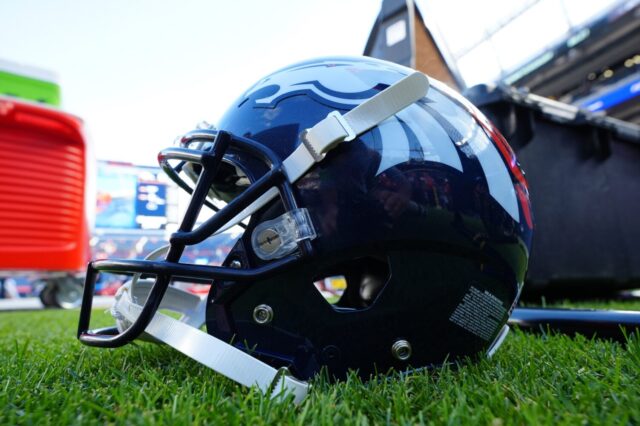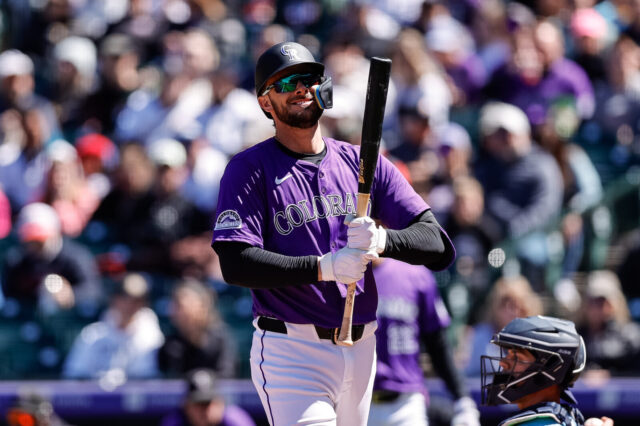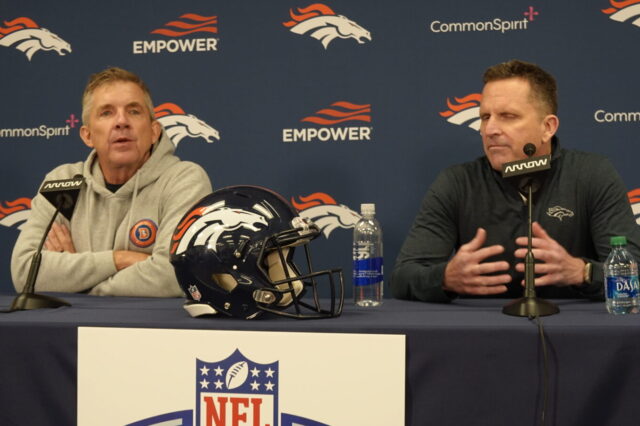One thing was clear when reviewing the combined internet a year ago: From sports to pop culture to politics, 2016 needed to end. As Americans, we lost a piece of our identity with the crumbling discourse found across social media, the divisive politics and the loss of public icons. Somehow, we thought that the changing of a calendar would ease some of the burden.
January 2017 wasn’t too different from the previous year. We gained confirmation that 2017 was a continuation of 2016 when the New England Patriots rallied from 25 points down in Super Bowl LI. See, it all comes back to sports. In all seriousness, it was just one of the reasons to feel this way.
Of course, now it feels foolish to think that much would change because of the end of the calendar year. The prospects for 2018 don’t seem to bring hope of big changes.
Locally, we are expecting a third year of Denver Broncos quarterback talk and no Denver team has won a playoff game since Super Bowl 50. Nationally, we have midterm elections and a virtually unchanged social media community.
My hope for 2018 is that we can start to transform how we follow sports. We can’t go back to sports being a safe haven from the rest of the rotting discourse, but perhaps sports can start to lead a reformation.
Sports and political talk developed in tandem. Sports coverage became debate and outrage first. Then, political coverage started to resemble the sports coverage. Now, political coverage has infected sports coverage.
The problems started with an adherence to a 24-hour news cycle (the precursor to What’s Trending). Of course, there was less sports news than there were hours in the day, which meant that opinion became king in that environment. You took a side and then entered into an argument — first the talking heads — then the sports communities on the internet. The noise outweighed the information at times. You developed your camps and then stuck with them. This is what happened in politics too.
Sports are not going to solve the political turmoil of our time, but maybe we can start to address sports’ place in society as a part of the media. If we start tackling the issues that infect sports, perhaps strategies can develop to start real conversations in other areas again.
So how do we begin to move discussions forward?
Change What Drives Sports Coverage
This seems counterintuitive, but the internet needs to stop being the engine for all other sports coverage (websites, podcasts and radio shows). Right now, what’s trending on social media fills ESPN’s daytime programming. Full segments of radio shows are based on something seen on social media.
We need to remember that Twitter is a smaller conversation, rather than a larger one. In a society that used to have an exchange of ideas controlled by front pages and network television, it makes sense to look at Twitter and Reddit as the front page of the internet. Searches on Google seem like a roadmap, but they are not the full story.
I’ve tweeted nearly 29,000 times, so I understand that it takes a certain amount of arrogance to be a prolific tweeter. At times, it takes an unfiltered feel for the keyboard. It’s less about having dialogue with others and more about having a discussion with yourself. All of this noise causes real conversations to sink below the loudest, outrage-filled voices.
A majority of people do not tweet, and they choose the level they would like to interact within the internet. They also have opinions outside of the internet sphere. Why are we catering coverage to these people based on the internet?
Instead, we need to give more power to creative individuals and quieter voices. The producers and editors need to be at least partially detached from the internet to spark interesting conversations. It will cost some clicks, but as we continually see on the internet, the current model isn’t sustainable. The more creative we get with our content, the more engaging it can be.
Ask Better Questions
For the third year in a row, the big question for Denver sports will be: Who is the Broncos quarterback? The inherent problem with this subject is that only John Elway can answer it. Yes, there are some interesting ways to have that discussion, but those conversations have happened.
So when it comes to the Broncos (and other sports), how do we ask new questions and reward content that takes new approaches in the coming year? How do we compare other sports moments and teams to the Broncos to grow our knowledge as a community?
Also, within these better questions, how do we transition to better answers?
Treat Sports with Nuance
This is where sports coverage gets complicated. The problem is not just in the questions, but in the way we answer them. There is very rarely one answer, but the sports arguments seem to require that one answer is right and every other answer is wrong. To uncover the gray areas in discussions, the media must be willing to have conversations. This takes thought, research and the ability to listen.
Imagine a conversation about the national anthem protest instead of just a series of debates. Imagine finding nuance in efforts to bring awareness to inequality. Imagine being vulnerable to the discussions needed about the treatment of women in sports (which is going to become a bigger topic in 2018).
It’s scary and vulnerable and not the masculine cocoon we have created around sports, but it moves people forward. It opens up access to sports. It adds an audience and a community.
Build Communities
We need new coalitions of sports fans. It means including more voices in the everyday conversations around sports coverage. It means building a community where the quieter voices have the confidence to speak.
This will surely turn some people off, because when we really start working consciously to protect the people in our community who receive hate and are drowned out — the people who want to make the most noise will leave.
That’s okay. One, because I am not naïve enough to believe that the entire sports community is going to change to this model. Two, because I think it will lead to better questions and more nuanced conversations.
Have Space for Fun
Terry Frei brought up this idea, but what if a sports show hung up on anyone that wanted to talk about the Broncos when other topics were being discussed?
What would be the harm if we took the sports world as a fun place?
The calendar rotation itself is not able to change anything, but what if we started to take things into our own hands? Being willing to have a conversation is a start — something to look forward to in 2018.



